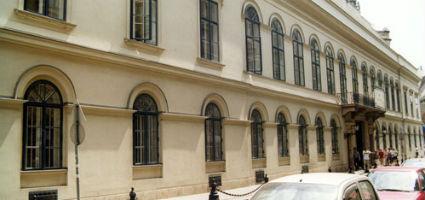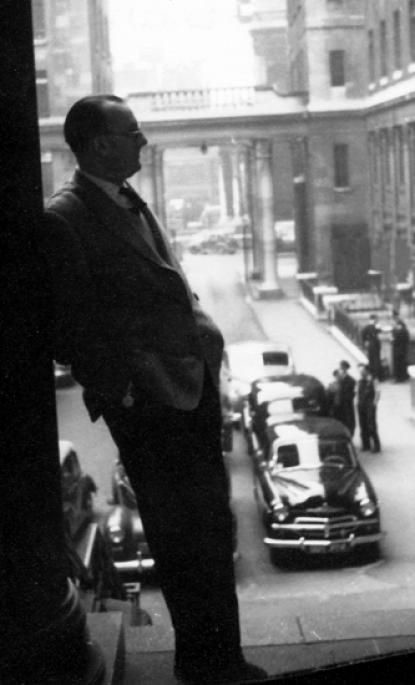2025. July 12. Saturday
Museum of Literature Petőfi - Budapest
 |
Address: 1053, Budapest Károlyi u. 16.
Phone number: (1) 317-3611
E-mail: muzeuminf@pim.hu
Opening hours: Tue-Sun 10-18
|
The exhibition has closed for visitors.
2005.11.11. - 2006.09.15.
Museum tickets, service costs:
|
Ticket for adults
(valid for the permanent exhibitions)
|
600 HUF
|
/ capita
|
|
Ticket for adults
(valid for the temporal exhibitions)
|
800 HUF
|
/ capita
|
|
Ticket for students
(valid for the permanent exhibitions)
|
300 HUF
|
/ capita
|
|
Ticket for students
(valid for the temporal exhibitions)
|
400 HUF
|
/ capita
|
|
Ticket for pensioners
(valid for the permanent exhibitions)
|
300 HUF
|
/ capita
|
|
Ticket for pensioners
(valid for the temporal exhibitions)
|
400 HUF
|
/ capita
|
|
Ticket for families
(valid for the permanent exhibitions)
|
1100 HUF
|
/ family
|
|
Ticket for families
(valid for the temporal exhibitions)
|
1500 HUF
|
/ family
|
|
Guide for students
(accompanied by a museum pedagogist )
|
2500 HUF
|
/ group
|
'Transportable Europe'. This is the title of the novel written by Cs. Szabó László in 1943. Its hero is a young man who is traveling around Hungary in the villages with the suitcase he inherited from his father to find ethnographic memories of the past. He only carries the necessary things in his large suitcase: underwear, soap, toothbrush, and forty volumes of books, the classic works of European literature, from Homer through Shakespeare to Kemény Zsigmond. He is carrying a lively transportable Europe with him.

Cs. Szabó László did not suspect at the time he wrote the novel how it would become the symbol of his own life since the biggest journey, emigration did not spare him either. In 1949 on his field trip to Rome he decided to leave the country for good. He left his house, job, library, son, love and all his former life behind. As he put it with adequate irony: 'At age 44 I simply began my life with a suitcase in my hand.'
Because of emigration, not only his life but also the acceptance of his works was broken into pieces. He was a well-known writer as the member of the second generation of the Nyugat (West). He received the Baumgarten Prize in 1936; from 1935, he was the manager of the literary department of the Hungarian Radio and shaped the quality broadcasts on radio. At last, protesting against the German occupation, he resigned from his job without hesitation.
From the autumn of 1945, he tutored the general history of civilization at the Collage of Fine Arts. He spent 33 of 34 of emigration in England. For decades, the readers in Hungary did not know him since his works were not accessible. His works were alluded to with false notions at official meetings. At that time, in 1980, he traveled to Hungary again and lectured at the Collage of Fine Arts again for a large number of people. His first lines that sound light but are full of meaning were spoken there: 'I said at my last class 31 years ago...'.
His rich library was lost by the time he came back to Hungary. He decided not to have more than 300 book at a time. But as he was an incurable reader, he collected more that 15 000 in his home in England. In his will he declared that he wanted to be buried in Sárospatak along with his library. His works can be published without difficulty in the last decade and a half. The publishing of the series of his life has just began. His spiritual heritage has to be preserved by us, the readers.
The exhibition was organized by the literature historian Kelevéz Ágnes.

Cs. Szabó László did not suspect at the time he wrote the novel how it would become the symbol of his own life since the biggest journey, emigration did not spare him either. In 1949 on his field trip to Rome he decided to leave the country for good. He left his house, job, library, son, love and all his former life behind. As he put it with adequate irony: 'At age 44 I simply began my life with a suitcase in my hand.'
Because of emigration, not only his life but also the acceptance of his works was broken into pieces. He was a well-known writer as the member of the second generation of the Nyugat (West). He received the Baumgarten Prize in 1936; from 1935, he was the manager of the literary department of the Hungarian Radio and shaped the quality broadcasts on radio. At last, protesting against the German occupation, he resigned from his job without hesitation.
From the autumn of 1945, he tutored the general history of civilization at the Collage of Fine Arts. He spent 33 of 34 of emigration in England. For decades, the readers in Hungary did not know him since his works were not accessible. His works were alluded to with false notions at official meetings. At that time, in 1980, he traveled to Hungary again and lectured at the Collage of Fine Arts again for a large number of people. His first lines that sound light but are full of meaning were spoken there: 'I said at my last class 31 years ago...'.
His rich library was lost by the time he came back to Hungary. He decided not to have more than 300 book at a time. But as he was an incurable reader, he collected more that 15 000 in his home in England. In his will he declared that he wanted to be buried in Sárospatak along with his library. His works can be published without difficulty in the last decade and a half. The publishing of the series of his life has just began. His spiritual heritage has to be preserved by us, the readers.
The exhibition was organized by the literature historian Kelevéz Ágnes.
